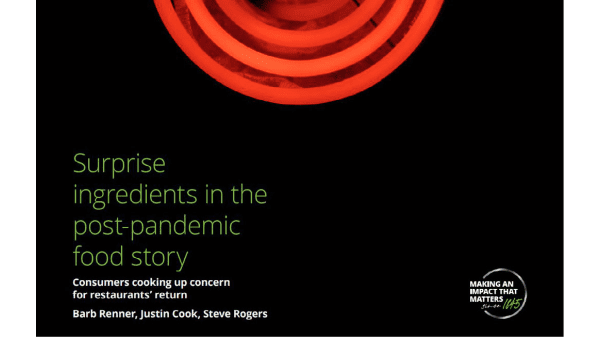Some people are skeptical about UFOs, the afterlife, or the existence of God.
Personally, I’m skeptical about surveys.
It’s partly because you can create a survey that tells you anything you want it to, as political advocacy groups learned decades ago.
Even when the intent is more objective, there are reasons to call survey findings into question.


I’m thinking of a newly released report from Deloitte about post-pandemic consumer eating trends.
“In our poll of 3,000 US consumers,” it said, “many said they will be buying fresh food and cooking more than they did before the pandemic.”
Some 49 percent said they would be cooking more, whereas a mere 7 percent said they would be cooking less—a net gain of 42 percent. There was another 29 percent net gain of people who said they would buy more fresh food.
This is, of course, purely speculative, although the Deloitte researchers admit that they are speaking “in the medium term.” At this point, the pandemic isn’t over: the omicron variant may extend this grim historical interlude still further than was expected a couple of months ago.
Most importantly, there is intent versus behavior. You also have to consider what people think they are supposed to answer. If you asked whether smokers were intending to quit over the next couple of years, you would get a number that is far higher than the number that actually will.
It would be fun to survey current smokers and find out how many of them were intending to quit two years ago.
Or perhaps interview consumers to find out whether they were intending to eat more fresh food two years ago versus the number that actually did.
Or you could analyze surveys of the past five years that talked about consumers’ intentions to eat more fresh produce and compare them to actual consumption trends.
That’s a study whose results I’d be inclined to believe.



